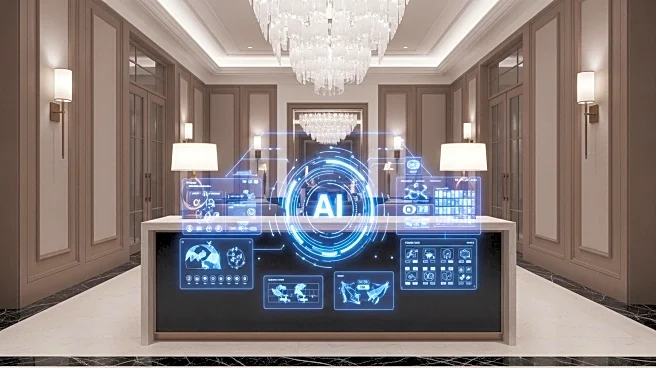What's Happening?
AI technology is revolutionizing the role of hotel managers by shifting their focus from operational tasks to strategic leadership. This transformation allows managers to anticipate guest needs and market trends, rather than merely reacting to daily challenges. AI tools provide predictive insights into occupancy shifts, guest sentiment, and task delegation, enabling managers to create unique guest experiences and capture non-obvious demand. The integration of AI in hotel management is fostering a Blue Ocean strategy, where managers can explore uncontested market spaces and enhance value creation beyond traditional metrics like RevPAR and occupancy rates.
Why It's Important?
The adoption of AI in hotel management is significant as it empowers managers to lead with foresight, improving operational efficiency and guest satisfaction. By freeing staff from repetitive tasks, AI allows them to focus on delivering human warmth, empathy, and creativity, which are crucial in hospitality. This shift not only enhances team empowerment but also drives revenue creativity by identifying unserved demand and transforming guest complaints into loyalty-driving moments. As hotels embrace AI, they can redefine leadership in hospitality, moving from micromanagement to strategic vision, ultimately leading to increased competitiveness and guest magnetism.
What's Next?
Hotels that integrate AI into their management practices can expect operational calm, reduced firefighting, and increased foresight. This transition will likely lead to new revenue streams from unserved demand and improved guest loyalty through personalized experiences. As AI continues to evolve, hotel leaders will need to develop skills in signal literacy, strategic delegation, and narrative leadership to fully leverage AI's potential. The ongoing debate about AI's role in hospitality will focus on balancing technological advancements with the human-centric nature of the industry.









